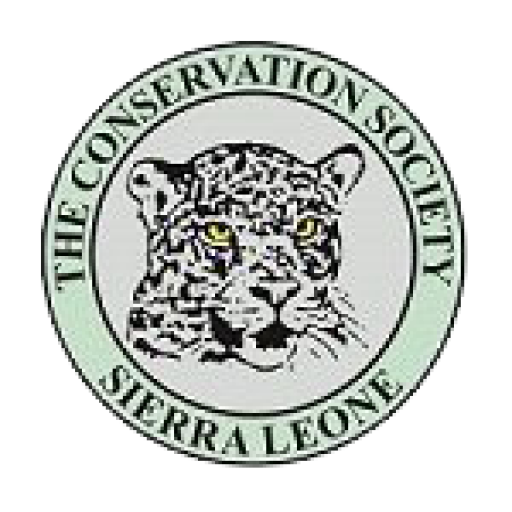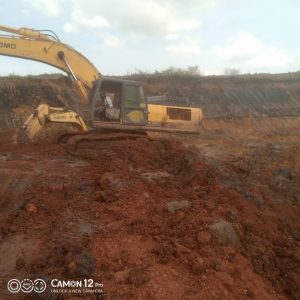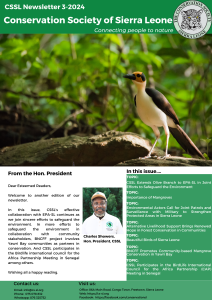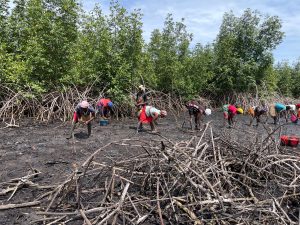On 13th October 2022 the European Union, the United Nations and the British High Commission in Sierra Leone together with the government of Sierra Leone organised a High-Level Climate Action Dialog in the run-up to COP 27. The Conservation Society of Sierra Leone participated as part of the Civil Society.
The Ministers of Environment and Planning and Economic Development opened the dialog together with the British High Commissioner and the representatives from the European Union and the United Nations. In their opening statements they set the floor for the presentations and discussions to come.
“Sierra Leone lost 30% of its forest cover in the last 20 years.” highlighted the British High Commissioner Ms Lisa Chesney. “The highest rate of deforestation especially on the Western Area Peninsula is observed in the last two years. Protecting climate means protecting people´s livelihood and jobs.” she continued her speech. All present agreed on the importance of connecting conservation with the livelihood of people. As the Minister of Planning and Economic Development Mr Francis M Kai-Kai said: “Sierra Leone belongs to the 10% countries in the world which are most affected by climate change. To find a sustainable answer we need to involve communities. We have to make sure that all coastal communities are in line with planned climate action activities. They cannot be left behind.” All representatives from government and international organisations emphasized on the urgent need to take action. “Climate change is here. It is not a myth,” noted the Minister of Environment Professor Foday Jaward. “It is time to change the direction. It is time to act. But for that we need funds, we need support, and we need full commitment of everyone.”
In the first session successful case studies were presented. One of them the REDD+ project of CSSL, GoSL and RSPB in the Greater Gola Landscape. As the topic of the dialog was “Working together towards financing climate interventions in Sierra Leone.” the special interest was in projects which have positive experience with connecting conservation with income generation through climate funds, REDD+ and other options.
As it became clear throughout the presentations also in the following sessions, the biggest challenge for climate action funding in a country like Sierra Leone is, that requirements for international funding are often not easy to meet. One big challenge is the lack of data on environment and climate as well as capacity of local NGOs. But still case studies from Sierra Leone and examples from other countries like Costa Rica showed that it is possible and that it can be worth it.
From the perspective of CSSL as a conservation and environmental organisation it was important to gather key stakeholders before COP 27 in Egypt and UN Biodiversity Conference in December in Montreal to emphasize on the importance of conservation and nature protection in Sierra Leone. “Conservation is not only about nature and animals. It is also about providing livelihood for affected communities. I was very happy to hear the Ministers and other panellists saying that nature is protecting and supporting us. This is what CSSL is promoting since many years through our message: We for Nature. Nature for Us.” explained Dr. Sheku Kamara, Executive Director of CSSL at the end of the Climate Action Dialog. “We hope that, going forward, we will really see affirmative action from government to protect the biodiversity in Sierra Leone and that we will not have to listen to reports about ongoing deforestation anymore.”
For more information on the United Nations Climate Action Partnerships, have a look into the Partnership Resource Brief.



